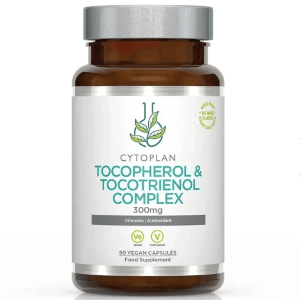A rather unsurprising but direct correlation in blood and heart issues has arisen from those who took the covid vaccine. Those of the covid cult will carry on and insist that it is a mere coincidence.... A rather shocking coincidence that is rising daily.
Stroke, thrombosis, heart attack and myocarditis are just a few of the named conditions with many not surviving them.
While there is still much unknown about these vaccines, we can certainly help mitigate these terrible "side effects" with good knowledge.
If you know someone with vaccine regret or anyone who has a medical diagnosis relating to blood and heart issues, then please read on.
Vitamin E - Miracle Supplement
I recently started investigating if there were any natural ways to mitigate blood clotting and heart issues, and to my 'un'surprise, much wonderful research has been buried on the topic of vitamin E and it's direct correlation to this particular arena of blood coagulation and heart disease.
There is scientific evidence that dates back to the 1940's showing the incredible effect that this humble vitamin had in mitigating almost all heart disease.
The Shute brothers were the pioneers of the investigation into vitamin E and it's effect on the body and their discoveries where miraculous.
It's no surprise that this information of a simple nutritional supplement has been buried and discredited by the modern medical mafia.
The Shute Brothers' timeline of discovery looked like this:
1936: Vitamin E-rich wheat germ oil cures angina.
1940: Vitamin E suspected as preventive of fibroids and endometriosis, and curative of atherosclerosis.
1945: Vitamin E shown to cure hemorrhages in skin and mucous membranes, and to decrease the diabetic’s need for insulin.
1946: Vitamin E greatly improves wound healing, including skin ulcers. Also demonstrated effective in cases of claudication, acute nephritis, thrombosis, cirrhosis and phlebitis. Vitamin E strengthens and regulates heartbeat.
1947: Vitamin E successfully used as therapy for gangrene, inflammation of blood vessels (Buerger’s disease), retinitis and choroiditis.
1948: Vitamin E helps lupus erythematosus and shortness of breath.
1950: Vitamin E shown to be effective treatment for thrombosis, varicose veins, and in cases of severe body burns.
1954: The Shutes’ medical textbook, Alpha Tocopherol in Cardiovascular Disease, is published.
1956: The Shute's book "The Heart and Vitamin E" is published.
(Source: Doctoryourself.com)
What doses should you take?
The Shute brothers devised a series of protocols (dosages) for a variety of issues - I highly recommend you check out http://www.doctoryourself.com/shute_protocol.html for this information and contraindications.
Vitamin E is a fat soluble vitamin composed of compounds called tocopherols and tocotrienols, there are four tocopherols and four tocotrienols. Most vitamin E supplements contain only alpha-tocopherol, the best known member of the eight-member vitamin E family, rather than the full spectrum.
It is now apparent that studies showing little or no effect from vitamin E supplementation may have failed in part because they used only alpha-tocopherol, rather than also including other tocopherols and tocotrienols. This is why I recommend this one from Cytoplan:
35% Discount Code for all Cytoplan Products.
Cytoplan are a 30 year old British Company with high quality and ethical standards. They deliver internationally.
Sources:
The Shute Brothers, Dr. Evan Shute and Dr. Wilfrid Shute, were Canadian physicians who conducted research on the therapeutic benefits of vitamin E, particularly in the treatment of cardiovascular diseases. Their work, although controversial at times, contributed to the understanding of the potential health benefits of vitamin E. Here are some sources that discuss the findings of the Shute Brothers' work:
Shute WE, Shute EA. "Vitamin E and Its Usefulness in Angina Pectoris." Canadian Medical Association Journal. 1946;54(4):319-321. PMID: 20319746. This early paper by the Shute Brothers discusses their observations regarding the use of vitamin E in the treatment of angina pectoris (chest pain). They reported positive outcomes in patients treated with vitamin E supplementation.
Shute WE, Shute EA. "The Shute Institute Report on Natural Substances (Vitamin E)." Journal of Applied Nutrition. 1975;27(2):48-53. This report summarizes the research findings and clinical observations of the Shute Brothers regarding the therapeutic benefits of vitamin E in various health conditions, including cardiovascular diseases.
Shute WE, Shute EA. "Treatment of Cardiovascular Disease with Vitamin E and Other Antioxidants." Texas Reports on Biology and Medicine. 1957;15(2):285-294. PMID: 13467765. In this paper, the Shute Brothers discuss their clinical experience and findings related to the use of vitamin E and other antioxidants in the treatment of cardiovascular diseases, such as angina and peripheral vascular disease.
Passwater RA. "The Shute Institute Report on Natural Substances (Vitamin E): Review and Commentary." Journal of Orthomolecular Medicine. 1996;11(1):3-14. This article provides a review and commentary on the Shute Brothers' work on vitamin E, discussing their findings and contributions to the understanding of the therapeutic potential of this vitamin in cardiovascular health.


